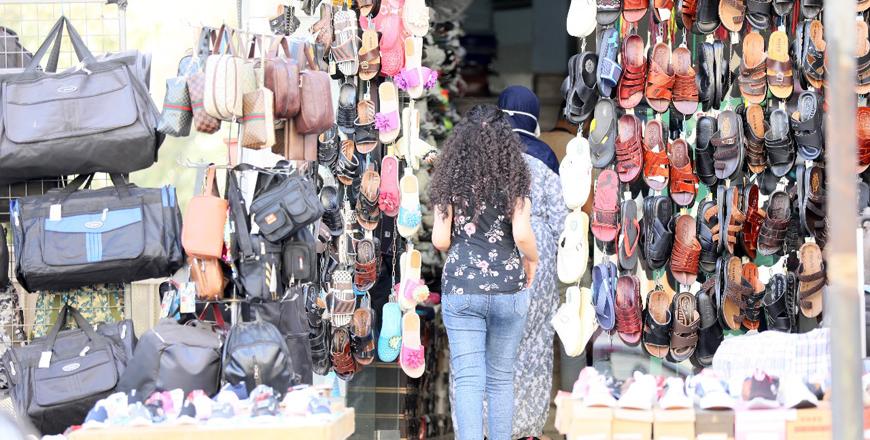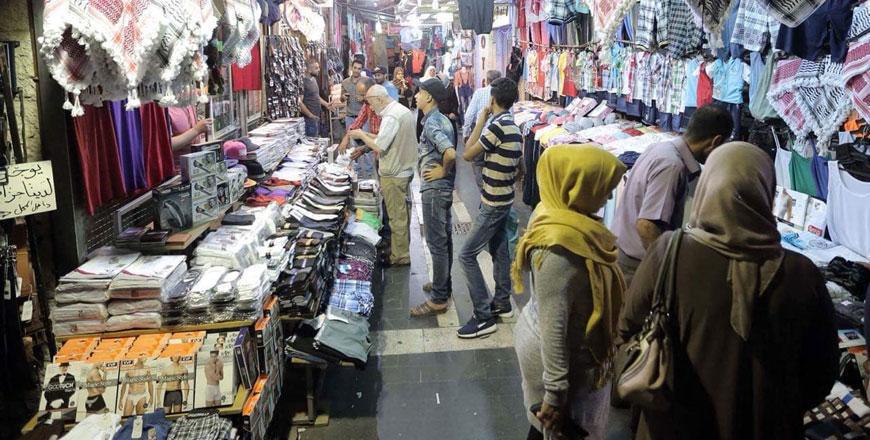You are here
Clothing, footwear stakeholders put forth strategic plan for revitalising sector
By Maram Kayed - Jun 16,2020 - Last updated at Jun 16,2020

Stakeholders at a meeting held recently at the Jordan Chamber of Commerce confirmed that there are 'sufficient quantities' of clothing, footwear and textiles for the summer season in the local market (Photo by Osama Aqarbeh)
AMMAN — A “strategic plan for action” has been drafted for the clothing, footwear and jewellery sector by the Jordan Chamber of Commerce with the help of various stakeholders.
Clothing sector representative at the Jordan Chamber of Commerce Asaad Qawasmi said in remarks to The Jordan Times: “A plan of action for the coming period has been set in order to pull the sector out of the crisis that it is currently suffering from as a result of the COVID-19 pandemic.”
During a meeting held recently at the chamber, participants discussed the stock of clothing, footwear and textiles for the summer season and found that there are “sufficient quantities” in the local market, Qawasmi said.
“More importantly, it was agreed upon that a mechanism for preparing for the winter season and providing new sources for imports must be developed,” he added.
The standardisation of time periods for sales and offers, a topic that had been debated previously, was also brought to the table.
In previous remarks to The Jordan Times, former President of the Clothing Syndicate Zuhair Omari said that the government “must establish certain time periods for sales and discount offers rather than allowing shops to offer them all year long”.
“Having a specified timeframe for sales allows for the creation of shopping festivals as well as an increase in citizens’ purchasing power,” he added.
The chamber asked stakeholders in the sector to review an official document it submitted to the Ministry of Industry, Trade and Supply, which voices the “many challenges in the sector as well as the suggested appropriate solutions including issues such as rent, taxes, fees and assistance through financial facilities”, Omari noted.
He said that the "catastrophic" situation the sector is witnessing must be addressed by imposing more restrictions on postal parcels, which “have negatively affected local clothing shops”, in addition to reviewing customs duties and taxes imposed on the sector. Such moves would aim to lower prices and “break the stalemate” witnessed in the markets.
“We need to find solutions to pump liquidity into the sector by providing help from banks on concessional terms away from complicated procedures in order to enable stakeholders in the sector to fulfil their obligations towards others, especially in regard to paying the salaries of their workers,” he concluded.
Related Articles
AMMAN — Even with the advent of winter, the demand for warm clothing and footwear remains limited due to the continued partial and comprehen
AMMAN — The cancellation of the Friday curfew has reflected positively on the clothing and footwear sector, representative of the clothing,
AMMAN — Local markets across Jordan are witnessing a "noticeable" increase in trade activity ahead of the Christmas season, with businesses












